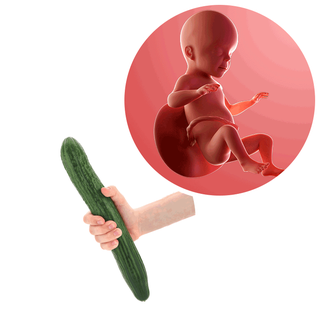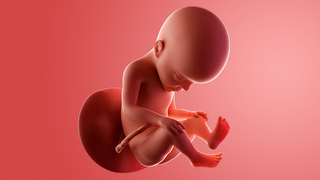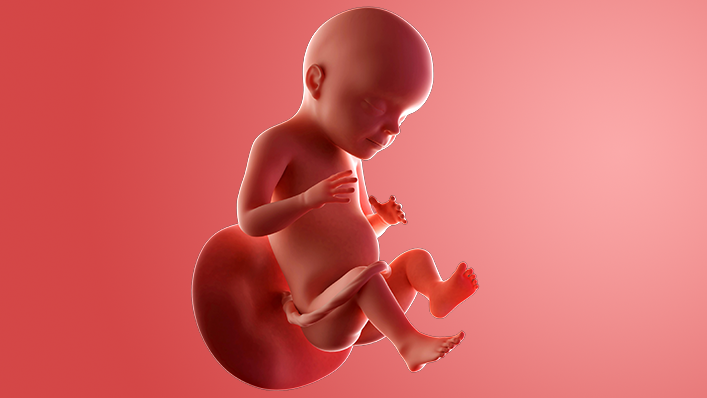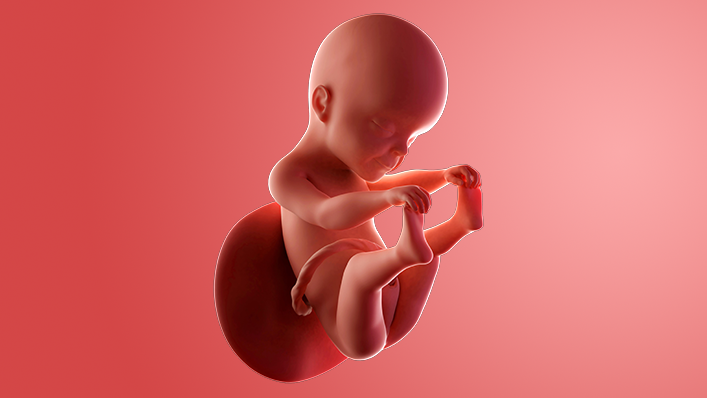- Week 13
- Week 14
- Week 15
- Week 16
- Week 17
- Week 18
- Week 19
- Week 20
- Week 21
- Week 22
- Week 23
- Week 24
- Week 25
- Week 26
- Week 27
Week 26
As you approach the 3rd trimester, you might be feeling more tired, and a bit more clumsy and uncoordinated.
That's understandable. It's hard carrying around extra weight and also your centre of gravity will have changed with your growing bump, and that affects your sense of balance.
You may need to allow yourself more time to do your usual activities, like your daily walk to the bus stop.
It's important to stay active but your body's changing all the time, so be patient with yourself.
What's happening in my body?
There is a lot of activity going on inside your bump at the moment. Read about your baby's movements during pregnancy on the NHS website.
If you're worried that the movements have slowed down or stopped, contact your midwife or maternity unit straight away.
You may be getting more leg cramps now, particularly during the night.
Try doing foot and ankle exercises. Just pulling your toes upwards could help, or rubbing the muscle where it hurts.
'Baby brain'
Are you getting a bit more forgetful? If you keep losing your keys, then you could have what some people refer to as "baby brain".
This is not a medical condition, or scientifically proven, it's just something that some pregnant women report. It could be caused by tiredness and having a lot on your mind.
2nd trimester pregnancy symptoms (at 26 weeks)
This week, your signs of pregnancy could include:
- tiredness and sleeping problems (week 19 has information about feeling tired)
- stretch marks (read about stretch marks on week 17's page)
- swollen and bleeding gums (week 13 has information about gum health during pregnancy)
- pains on the side of your baby bump, caused by your expanding womb ("round ligament pains")
- piles (read about piles on week 22's page)
- headaches
- backache
- nosebleeds
- indigestion and heartburn (week 25 talks about digestive problems)
- bloating and constipation (read about bloating on week 16's page)
- leg cramps (week 20 explains how to deal with cramp)
- feeling hot
- dizziness
- swollen hands and feet
- urine infections
- vaginal infections (see week 15 for vaginal health)
- darkened skin on your face or brown patches – this is known as chloasma or the "mask of pregnancy"
- greasier, spotty skin
- thicker and shinier hair
You may also experience symptoms from earlier weeks, such as:
- mood swings (week 8's page has information on mood swings)
- morning sickness (read about dealing with morning sickness on week 6's page)
- weird pregnancy cravings (read about pregnancy cravings on week 5's page)
- a heightened sense of smell
- sore or leaky breasts (read about breast pain on week 14's page) – a white milky pregnancy discharge from your vagina and light spotting (seek medical advice for any bleeding)
What does my baby look like?
Your baby, or foetus, is around 35.6cm long from head to heel. That's approximately the size of a cucumber.
Around now, your baby's eyes will be opening for the first time and the next trick will be to learn how to blink.
It's a myth that all babies are born with blue eyes – the colour will depend on the parents' genetics, and brown is very common.
You will not know the permanent colour for a while, as they can keep on changing right into adulthood. However they will have probably settled on a colour by the time your baby is aged 3.

Action stations
Check out what benefits you're entitled to, as you may be able to claim Maternity Allowance from now on. This is usually paid out if you do not qualify for Statutory Maternity Pay.
Find out what benefits you and your partner could claim.
This week you could also…
More in week-by-week

Week 27
Congratulations! You've reached the final week of your 2nd trimester and are two-thirds of the way through your pregnancy.
More in week-by-week guide to pregnancy


